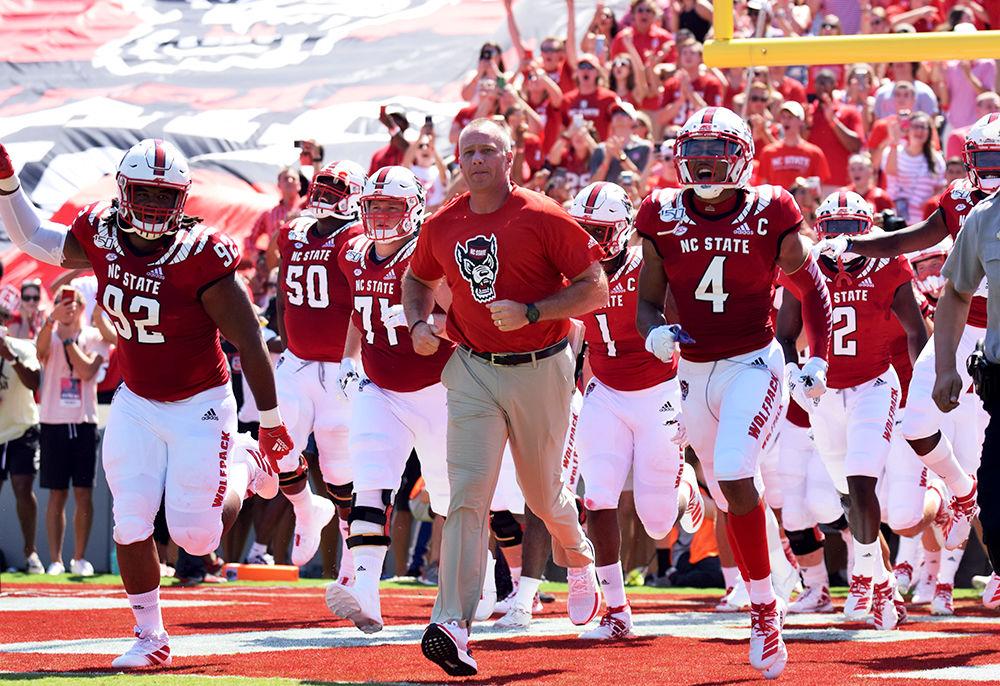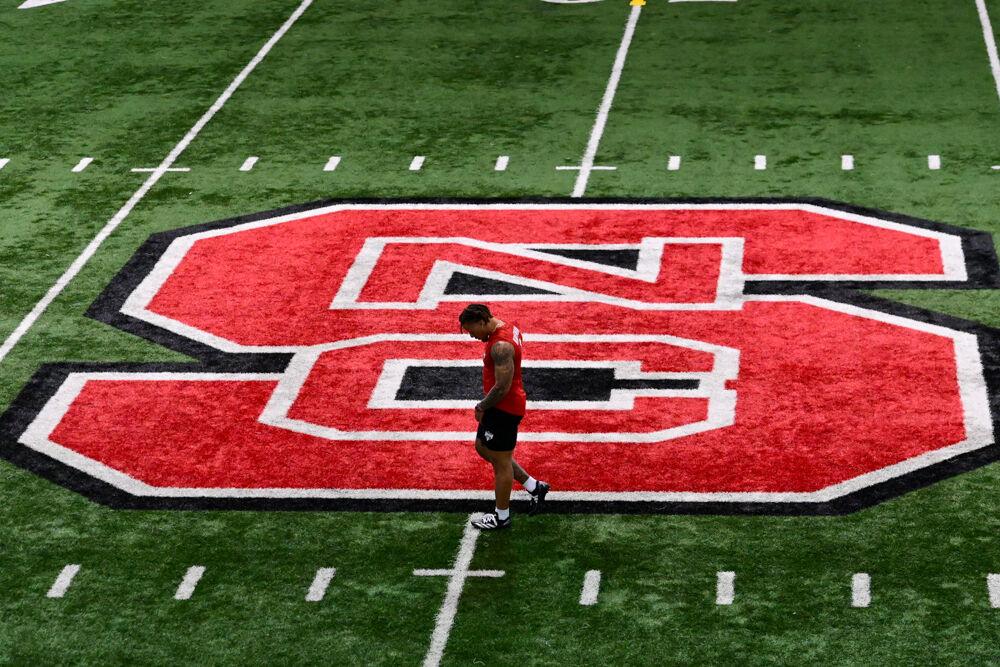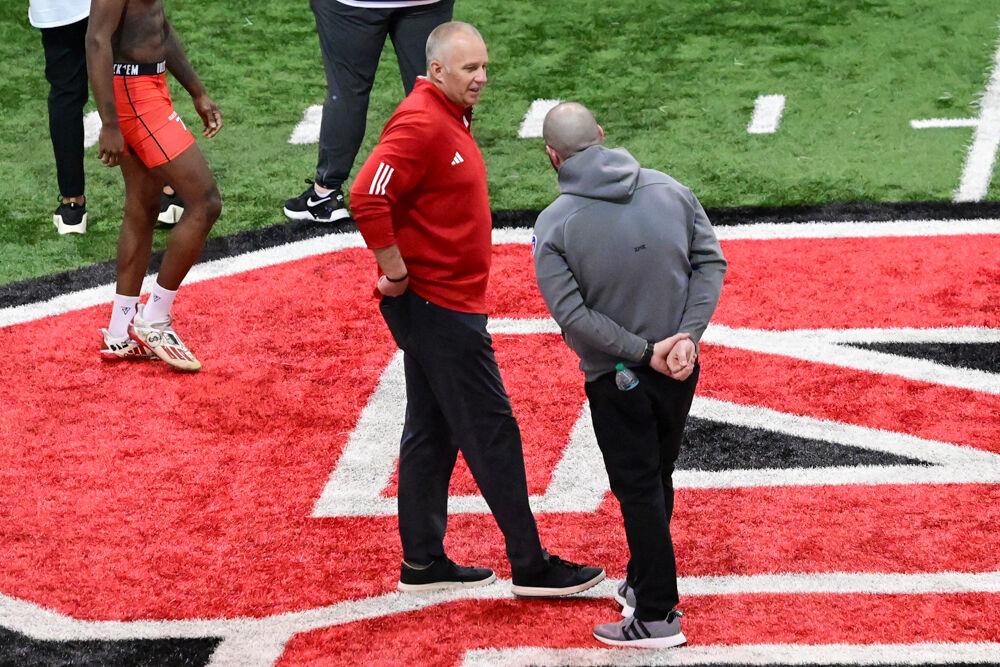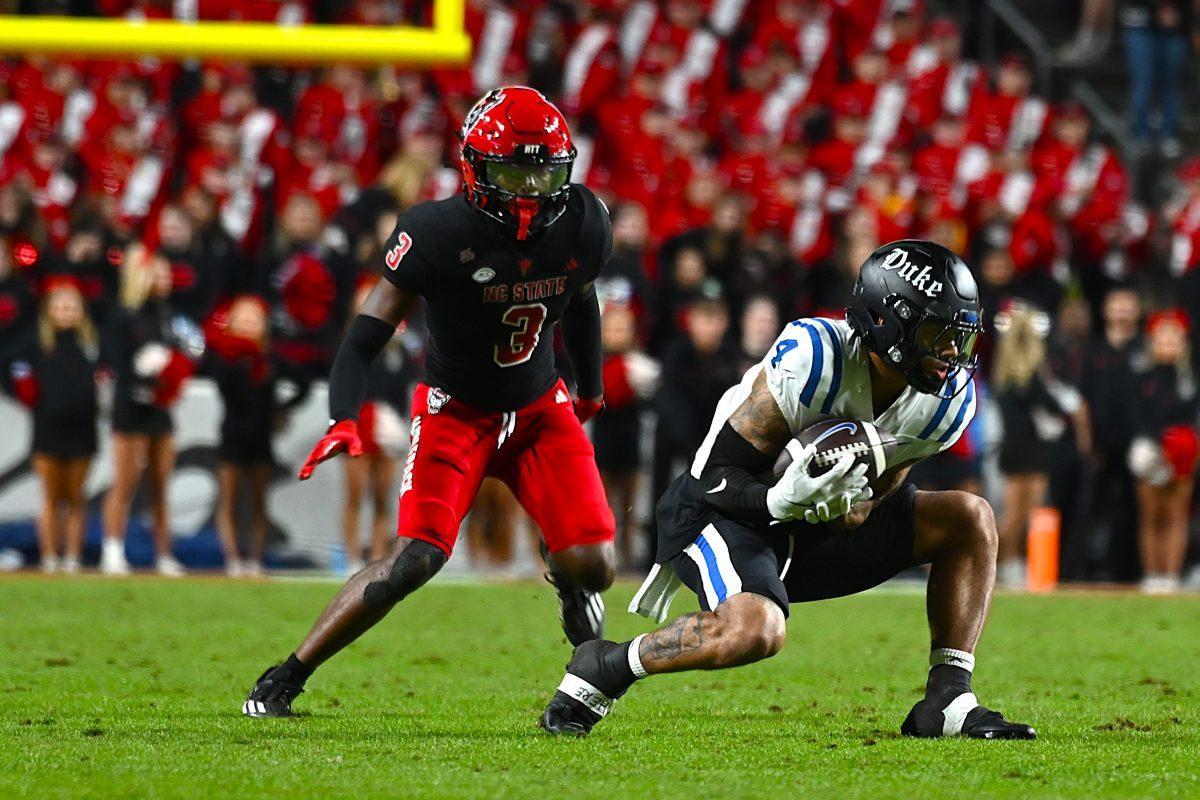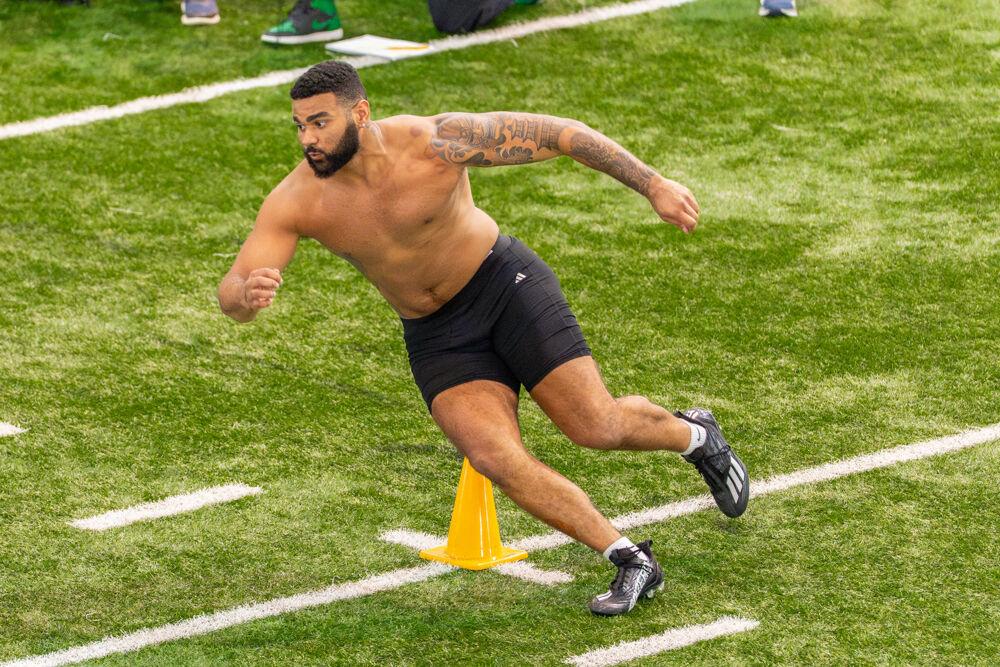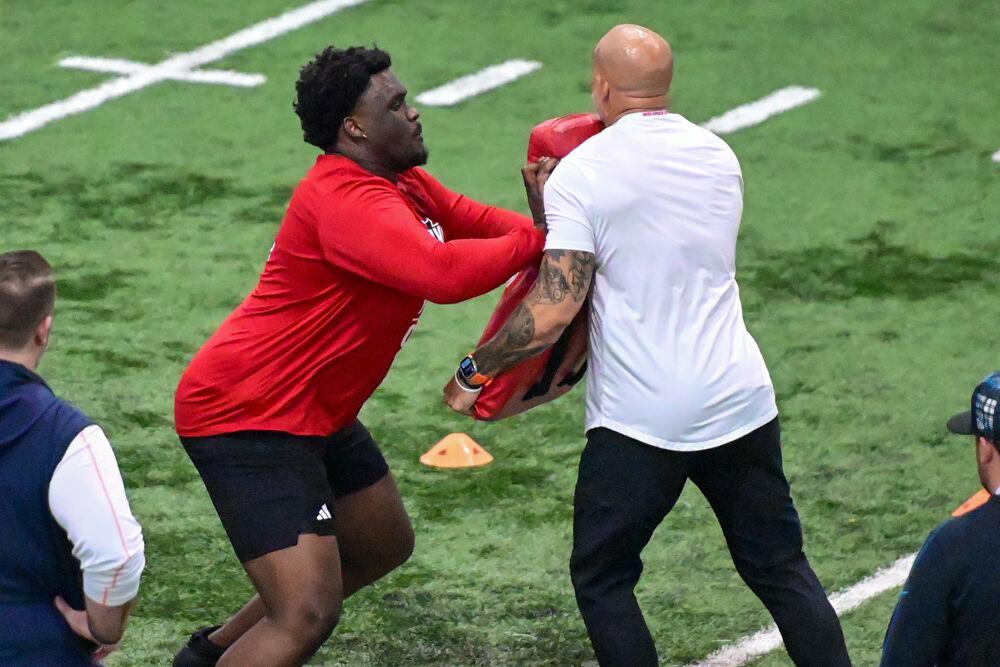When NC State football finished its 2019 season, the 4-8 (1-7 ACC) campaign was in competition with the 2013 season as Doeren’s worst year in Raleigh. The storm was over and it was time to rebuild. And it did.
Nearly an entire defensive staff was fired, a new offensive coordinator came in to lead the offense and they had a lot to fix. At a glance, the 2019 team was subpar statistically. It scored just 22 points a game and gave up 30, forcing just eight turnovers while coughing up 21 of its own.
Ignore the cupcake games, though, and it’s even worse. The offense averaged 17 points scored against Power Five opponents with the defense giving up over 36 points in those games. NC State was within 17 points of its ACC opponents just three times with a 1-2 record in those games.
That all changed in 2020. Playing an all-conference schedule, it brought those numbers back to the mean. Under offensive coordinator Tim Beck, the offense scored 30 points a game, while the defense performed a touchdown better against Power Five competition than the previous year under new defensive coordinator Tony Gibson. The defense also forced 13 turnovers.
With a 4-2 record in one-possession games, the team just found ways to win. Some games the rushing attack carried, others it was the defense, even special teams — clutch isn’t a word often used to describe NC State football, but that’s what this squad was.
Redshirt junior quarterback Bailey Hockman took massive strides forward, throwing for over 2,000 yards and 13 touchdowns with a completion percentage nearly 10 points higher than the previous year. The receiving corps was solid, led by a resurgent year from senior Emeka Emezie.
Defensively, the linebacking corps lived up to its hype. Redshirt sophomore Payton Wilson was one of the top tacklers in the NCAA with redshirt junior Isaiah Moore not too far behind him. The secondary might’ve been the biggest surprise on the team, though.
Underclassmen led the way with sophomore safety Jakeen Harris putting up a stellar season. As the third-leading tackler on the team, he also caught a pick and broke up seven other passes. At cornerback, redshirt freshman Shyheim Battle, sophomore Cecil Powell and freshman Aydan White all played beyond their few years and held up on islands, while junior nickel Tyler Baker-Williams was a do-everything vet.
While the defense got off to a comparatively rough start compared to the offense, it ended the year holding its last five opponents to 20 points per game.
Despite all the growth the team showed, injuries held it back. Sophomore safety Rakeim Ashford had to be shut down after two games with a shoulder injury, starting redshirt sophomore quarterback Devin Leary was lost with a broken fibula, junior cornerback Teshaun Smith suffered an season-ending injury in the season-opener and six offensive linemen suffered injuries during the season.
The O-line injuries in particular were debilitating for the offense, which became more and more one-dimensional as a result. Over the first four games, the offense averaged over 34 points. Over the next four games, the offense averaged over 32. Over the final four games, the offense averaged just under 24 points per game.
While not a perfect season, the ship has been righted. The Wolfpack went 8-4 (7-3 ACC), beat two ranked teams, made it back into postseason play and the upper echelon of the conference standings. Now the question is: How far can it go?
The Wolfpack should return nearly every starter minus Alim McNeill and perhaps both its starting tight ends in Cary Angeline and Dylan Autenrieth. It’ll have a full offseason with most, if not all, injured players ready to go by the time the season starts.
If the standard is just being good, those developments will be enough to keep existing momentum going. This team is talented, and Doeren and Co. are good enough coaches to continue to win eight games. Double digits are within reach, something never done by Doeren at NC State, but getting there is another story.
The 2021 schedule is not an easy one, with Clemson back on the docket along with UNC, Miami and a nonconference marquee matchup at Mississippi State.
Clemson is Clemson, but it’s losing Trevor Lawrence and Travis Etienne, and though it took UNC just two seasons to burst onto the national scene, it loses Javonte Williams, Michael Carter, Chazz Surratt and Dyami Brown. Competing with those two is a tall order given past blowouts — and we haven’t even considered Miami or Mike Leach’s Bulldogs — but each of them is more or less within the Wolfpack’s reach.
To catch up with the best, the team needs more explosiveness on both sides of the ball. The Wolfpack needs legitimate deep-ball threats in the wide receiver room, improved management of the team’s stable of running backs and better play at the defensive end to truly match up with top competition.
Maybe it has what it needs in the young players on the roster. Freshmen wideouts Anthony Smith and Chris Scott Jr. are burners with track speed, but they couldn’t get on the field with the logjam of vets in front of them. On the defensive side, sophomore end Savion Jackson had a quiet year, but he’s got the talent to step up and make some serious noise as an upperclassman. Doeren has done his job in recruiting for the past two to four years, now it’s all about turning that into results and filling in the gaps via the transfer portal.
The future is bright for this young Wolfpack squad, but it’s time for the program to go to the next level, or risk stagnation. Doeren is one of the winningest coaches in program history, but he’s still looking for his defining moment. After being snubbed for ACC Coach of the Year, the perennial chip on his shoulder should be bigger than ever and maybe at the best possible time.


